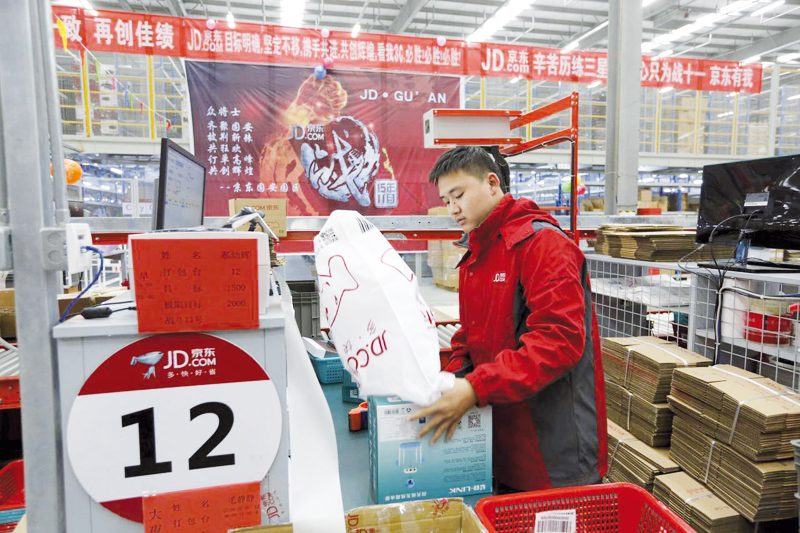

JD.com is feeling pretty good about itself. Too good, in fact.
The Chinese e-commerce giant just rolled out a $2 billion stock buyback plan right as the global economy heads for recession and markets crash. Even as most companies scramble to husband resources, JD reckons it has weathered the virus outbreak so successfully, thanks to “strengths in supply chain, logistics and technology,” that it can justify handing money back to shareholders.
It is possible there is another, unspoken, reason for the $56 billion company to initiate its third repurchase programme since 2015: it might be readying to follow arch-rival Alibaba onto the Hong Kong bourse. Goosing values ahead of time would help underpin a new share sale. JD recently hired banks to work on a second listing for as early as mid-year, Reuters reported this week. And the price indeed jumped nearly 9 per cent on the buyback news, outpacing a broader bounce on the Nasdaq.
What’s more, JD is prudently using cash on its balance sheet to repurchase shares over the next two years, rather than borrowing to do so. The resilience of its notably lower-margin business model of keeping warehouses and delivery people under one roof throughout the crisis — unlike Alibaba, which farms out much of those operations — is also deservedly getting fresh attention from investors.
Even so, with hordes of companies rushing to their respective governments for assistance, it is becoming all too clear that many of them deployed capital that would have been better kept in reserve. From 2009 to 2018, the 466 companies in the S&P 500 Index that were publicly listed over the decade used $4 trillion for buybacks, equal to more than half their collective profit, according to the Institute for New Economic Thinking.
Too many did so to jack up executive bonuses pegged to stock options and other equity awards. Many also bought when valuations were high.
Regardless of JD’s rationale, this misuses precious resources, especially for a company in a fast-changing sector whose research spending, at 2.5 per cent of revenue, is far below peers.
Even in a pandemic, old financial engineering habits are dying hard. — Reuters
Oman Observer is now on the WhatsApp channel. Click here



